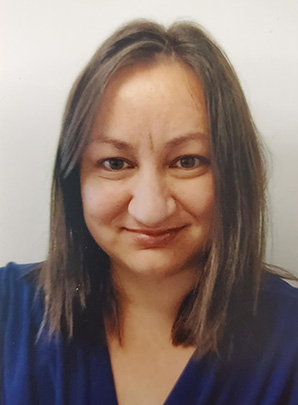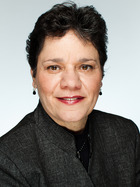For Any Cancer Diagnosis
- Q.
I'm a cancer survivor and am wondering if I should seek counseling now that my treatment has ended?
A.The decision to pursue counseling is always very personal. As a post-treatment cancer survivor, you may be dealing with concerns that are different than those you had at the time of your initial diagnosis. The post-treatment phase may be a time to reevaluate purpose, direction, and priorities. We know that many cancer survivors have fears of recurrence and other anxieties that friends and loved ones may not fully understand. Speaking with a counselor can help.
CancerCare offers a number of ways to get support including counseling and support groups. A support group provides a safe place for people coping with similar issues to share and learn from each other. Many people find the opportunity to relate to others in this way enormously helpful and powerful.
You may also want to listen to our Connect Education Workshop, Managing the Stress of Survivorship.
Going forward, keep in mind that taking care of yourself emotionally is equally as important as looking after your physical needs.
- Q.
My dad was diagnosed with cancer last month. He and my mother live in another state, and I have a family of my own so I can't be there to help them out on a daily basis. What can I do to support them from far away?
A.Being a “long distance” caregiver is a unique experience that can be especially challenging. Working to find balance between your own needs and the needs of a loved one with cancer can feel overwhelming for anyone in the caregiver role. But remember, there are many ways you can be supportive and involved in your loved one’s care regardless of the distance between you.
Offering emotional support is one of the most helpful things that you can do for your loved one. Simply checking in and letting your dad know that you are thinking him can go a long way; call, email, Skype, send a card or visit when you can. Those reminders not only show that you care, but may also leave you feeling more connected.
You can also help your parents with day-to-day tasks like managing bills, paperwork and getting organized. Similarly, you can help them navigate the medical system. Dealing with insurance companies, remembering doctors’ appointments and accessing resources can be overwhelming. You can help your family with this by taking on some of the responsibility, communicating with their doctors and nurses, and staying informed. This can alleviate some of the practical challenges for them, while keeping you in the loop.
There are also programs such as My Cancer Circle which exist to help caregivers easily enlist additional support. This online forum creates a sense of community that helps the caregiver, but also ensures that their loved ones needs are met. Family, friends and community members are often looking for ways to help: My Cancer Circle allows them to sign up for specific tasks, like cooking meals or providing transportation, which can help them feel useful and give you some respite and comfort in knowing that these needs are covered.
And lastly, it’s important that you take good care of yourself and your family. Know that there is support available to you, too. CancerCare offers free counseling and support groups that specifically address the needs of caregivers. We offer those supportive services in person, over the phone and online. These services can help you to take care of yourself and your needs, and put you in touch with other caregivers who can relate. This support can be a comforting and powerful experience, so please call us at 800-813-4673 for more information.
- Q.
How can a cancer survivor deal with fear of recurrence?
A.Fear of recurrence is very common and understandable in the context of your recent cancer experience. There are several ways in which you can manage this anxiety in order to live a full and meaningful life:
Practical
- Ask your oncologist about chances of recurrence, regular tests to schedule to check for signs that the cancer may have returned and steps you can take to increase the chances that it will not.
- Assess your life and look at your daily routine. Are there things you could improve about your diet? Ways to increase your physical activity? Things you can do to help you relax? To sleep better?
- Read our publication After Treatment Ends: Tools for the Adult Cancer Survivor.
- Listen to our podcast, Communicating with Your Health Care Team After Treatment: Making the Most of Your Visit.
Emotional
- Consider talking to a professional counselor, such as an oncology social worker at CancerCare who can suggest ways to manage your anxiety and help you process your feelings.
- Many cancer survivors also find support groups very helpful, as they can talk to other survivors with similar worries and fears and learn new coping skills. View support groups at CancerCare.
- Listen to our podcast Fear of Recurrence and Late Effects: Living with Uncertainty.
Social
- Talk to your trusted friends or family members about your concerns. Even if there are just one or two people with whom you feel comfortable sharing your fears, this can be a powerful way to get some relief from your anxiety.
- Make sure you continue to engage in hobbies and socialize with your friends is an essential and healthy form of distraction.
- Listen to our podcast Survivors Too: Communicating With and Among Family, Friends and Loved Ones.
Spiritual
- Reflect on what makes your life meaningful, both before and after cancer. What values and activities are important to you? How can you continue to honor those things you hold dear? Focusing on the bigger picture can help minimize the anxiety and remind you what you can do in the here-and-now to live a full life.
- Read our publication Strengthening the Spirit.
- Listen to our podcast Finding Hope and Meaning After Treatment.
- Q.
I am a newly diagnosed cancer patient. Needless to say, I'm on an emotional roller coaster as my life has changed drastically. The side effects have cause multiple issues, many not directly treatable and as a result I worry and experience anxiety on a number of issues: relationships, fertility, reoccurring cancer, finances and life expectancy. My question is how does a cancer patient find a therapist/psychiatrist (particularly one with experience with cancer patients)? Secondly, should cancer patients see a therapist or a psychiatrist?
A.I’m sorry that you are under so much stress and dealing with so much. It is perfectly understandable that you would have a lot of anxiety around these important issues. Because the mind and body are so connected, side effects from treatment often impact one’s state of mind as well. Getting emotional support as you face this experience is wise.
Here at CancerCare, we are oncology social workers and offer in-person counseling for people in New York City, New Jersey and Long Island. If you live outside of those areas, we offer short-term telephone counseling to help you cope with your cancer experience.
To find a longer-term therapist in your area who is skilled in working with people affected by cancer, try:
- Help Starts Here, through the National Association of Social Workers offers an online directory of clinical social workers, psychologists, psychiatrists, and other licensed professionals. You can search each database for clinicians who have experience in cancer issues.
Most therapists are social workers and psychologists, but some psychiatrists also provide therapy in private practice. Because of their medical training, psychiatrists are the only mental health professionals who can prescribe psychotropic medications. Many people see social workers, psychologists or other types of counselors for talk therapy while also seeing a psychiatrist for medication evaluation and monitoring, on a less frequent basis.
When choosing a therapist, one of the most important criteria to keep in mind is the rapport you have with him or her. You may have to shop around and it might take several tries. After each initial visit, ask yourself: How did I connect with that person? Does it seem like he/she “got” me? Can I talk freely with that person? Only you can decide which therapist is right for you. Pick someone with whom you can be open and honest, and who can support you through this challenging journey.
- Q.
My wife got back her biopsy and has her surgeon visit scheduled for the 22nd. She is 52 and I am so scared I cannot put it into words. I know I need to be strong for her and I am in front of her but I cry for hours when I am alone. I need to find a way to put some of this fear away so I can be the man she needs me to be and help her through this. Any advice?
A.It is a natural reaction to feel scared, especially with a cancer diagnosis. It is admirable that you want to be strong for your wife and give her the support she needs, but what about the support you need? It is helpful to have someone to talk to about your fears, someone who can be objective, someone that you can trust. You may want to join a support group for caregivers or engage in individual counseling or both. CancerCare offers in-person counseling for people in New York City, Long Island, and parts of New Jersey and Connecticut. If you live outside of those areas, we offer short-term telephone counseling to help you cope with the cancer experience. In addition, we also offer support groups in three different modalities: in-person (if you live in New York City, Long Island, New Jersey and Connecticut), telephone support groups and online support groups.
Here is an additional resource that may be helpful to you if you feel you need longer term supportive counseling:
- Help Starts Here, through the National Association of Social Workers offers an online directory of clinical social workers, psychologists, psychiatrists and other licensed professionals. You can search each database for clinicians who have experience in cancer issues.
- Q.
I've finished treatment and now I feel like I'm on my own. Are there things I should be doing?
A.Finishing cancer treatment often brings mixed feelings. A sense of relief and feelings of accomplishment are normal; so, too, is uncertainty about the future. Your instinct to prepare in some way for your survivorship is a good one. Here are some steps you can take to keep both your mind and your body healthy as you continue to work with your medical team.
Ask your doctor for a Treatment Summary. This should include:
- Your type(s) of cancer with the date and stage at diagnosis
- Types of treatment received (surgery, chemotherapy drugs, radiation doses and tests performed)
- Complications experienced (side effects, transfusions, hospitalizations)
- Other services used (physical therapy, acupuncture, herbal)
Discuss with your doctor what your Follow-Up Plan will be. This should include:
- Future schedule of visits (time and date)
- Who will deliver follow-up care (and where)
- Tests that will be done and why (surveillance and preventative)
- Assessment and treatment for long- or late-term effects (e.g., lymphedema, depression, pain)
- Evaluation of current health behaviors and promotion of healthy life style
There are great resources available that can help you organize all of the above information. The LiveSTRONG Foundation has developed worksheets and a Survivorship Notebook. The National Coalition for Cancer Survivorship (NCCS) provides information about Living Beyond Cancer.
You mentioned feeling “on your own” now that your treatment is complete. This is a common feeling when treatment ends, and it’s good to know about the different types of support available to you:
- Professional support provides you with information, resources and counseling
- Peer-to-Peer support reduces your sense of isolation and helps you connect with others who share similar concerns
To tap into these types of support, speak with an oncology social worker or join a post-treatment support group at CancerCare. A social worker can also help you identify local support services.
Finally, you might find it useful to listen to these Connect Education Workshops:
For Breast Cancer
- Q.
I was diagnosed with DCIS last year and my family's reaction has been "it's not really cancer". It hurts me that during my biopsies, lumpectomies and radiation, no one asked how I was doing. How do I get over the disappointment with my family and manage the stress of my own diagnosis?
A.Ductal carcinoma in situ (DCIS) is an early noninvasive form of breast cancer in which abnormal cells multiply and form a growth within a milk ducts of the breast. The term “noninvasive” means that the abnormal cells have not spread out of the milk duct into other parts of the breast. DCIS is normally found during a mammogram and confirmed by a biopsy. If left untreated, it is more likely to develop into invasive breast cancer so it is important to seek treatment.
During times of crisis such as health emergencies it is not unusual for friends, family members and loved ones to react in unexpected ways. Based on what you have shared, it sounds like your family’s response was unsympathetic and hurtful. Often times, loved ones think that they should only be positive or always look on the bright side. This can leave the patient feeling unsupported and unable to express his or her true feelings. I’m not sure if you’ve shared your feelings with your family, but sometimes people do not know what to say or do and need a little guidance.
Support groups can be an important part of overcoming your feelings of disappointment. Groups are a place where you find the support you need and feel heard and understood. Make sure to find a group that is a good fit for you; some organizations offer groups for women who’ve been diagnosed with DCIS or early stage breast cancer, including SHARE: Self-Help for Women with Breast or Ovarian Cancer.
I encourage you to be take care of yourself. You may want to explore individual counseling to work through your disappointment and stress. Learn more about counseling.
For Colorectal Cancer
- Q.
My mother was diagnosed with stage 3 colon cancer and I'm worried she is pulling away from those who care about her. I think it might be good for her to talk to others who've been diagnosed to get some guidance. Where should she go?
A.Your question is a good example of how a cancer diagnosis affects the entire family, not just the loved one who was diagnosed. Both caregivers and patients share similar challenges, although with different perspectives. Speaking with people in a similar situation can often be helpful. Many hospitals offer support groups, so I would begin your search by speaking with a hospital social worker who can let you know about available support groups. If you are having difficulty finding local face-to-face support groups or if traveling is difficult, CancerCare offers both telephone and online support groups for colorectal cancer patients and for caregivers.
There are additional organizations that offer support groups, information on how to connect with a local support group, or “buddy” matching programs:
- Colon Cancer Alliance
- American Cancer Society
- The Cancer Support Community
- United Ostomy Associations of America
We know that “one size does not fit all,” and it’s important to determine the type of support services most beneficial to the person in need. A support group can be helpful, and often individual counseling may be more appropriate. Introduce this information to your mom and allow her to ask questions and share her decision with you. And don’t forget to consider support for yourself. Our support group participants tell us they are glad they took the chance to connect with others, and report that they now have a greater understanding of their treatment, side-effects, options, medications, and emotions.
- Q.
I live in Queens, New York and my brother who has stage 4 colon cancer lives in Canada. I am one of his caregivers and he will be with me in New York for two weeks soon. Is there any way I can get counseling for him? He is depressed and has not coped well with his diagnosis.
A.It is very difficult to be a long distance caregiver. I can sense that you really want to be there for your brother but are finding it hard to know exactly how. Loss of control is something that goes hand in hand with a cancer diagnosis. Sometimes it even feels that the cancer is making the decisions. It is certainly making things more difficult. CancerCare has a staff of professional oncology social workers who can provide counseling and support to both you and your brother. Please call us at 800-813-4673 to schedule an appointment. CancerCare also offers online and telephone support groups specifically for patients and caregivers.
Caregiving is a heavy burden and it is easy to put your loved one first. But thinking about your needs as well will make you a better and more able caregiver. CancerCare offers publications on our website that will help you understand the demands of caregiving and how to be prepared and ready: “Caring Advice for Caregivers: How Can You Help Yourself?” and Caregiving for Your Loved One With Cancer. Another resource is our free Connect Education Workshop: Stress Management for Caregivers: Taking Care of Yourself Physically and Emotionally.
Family Caregiver Alliance is an organization that focuses solely on the needs of caregivers. The Caregiver Resource Directory includes chapters about symptom management at home and the goals of care in progressive illness.
Another helpful resource is the American Society of Clinical Oncology’s publication, Advanced Cancer Care Planning: What Patients and Families Need to Know About Their Choices When Facing a Serious Illness, which may be downloaded from their website or ordered free of charge.
And finally, the Colorectal Cancer Association of Canada website has many resources that could be helpful for your brother.

 Answered by
Answered by  Answered by
Answered by  Answered by
Answered by  Answered by
Answered by  Answered by
Answered by  Answered by
Answered by  Answered by
Answered by  Answered by
Answered by